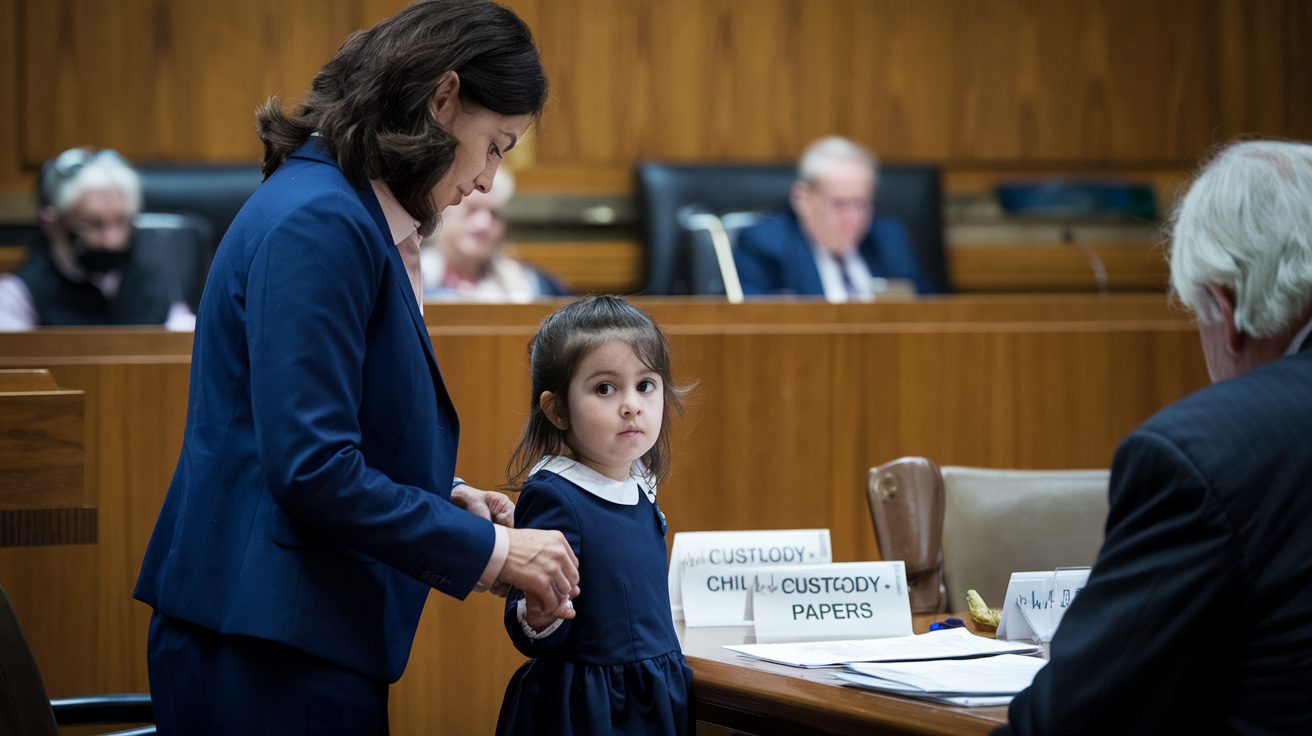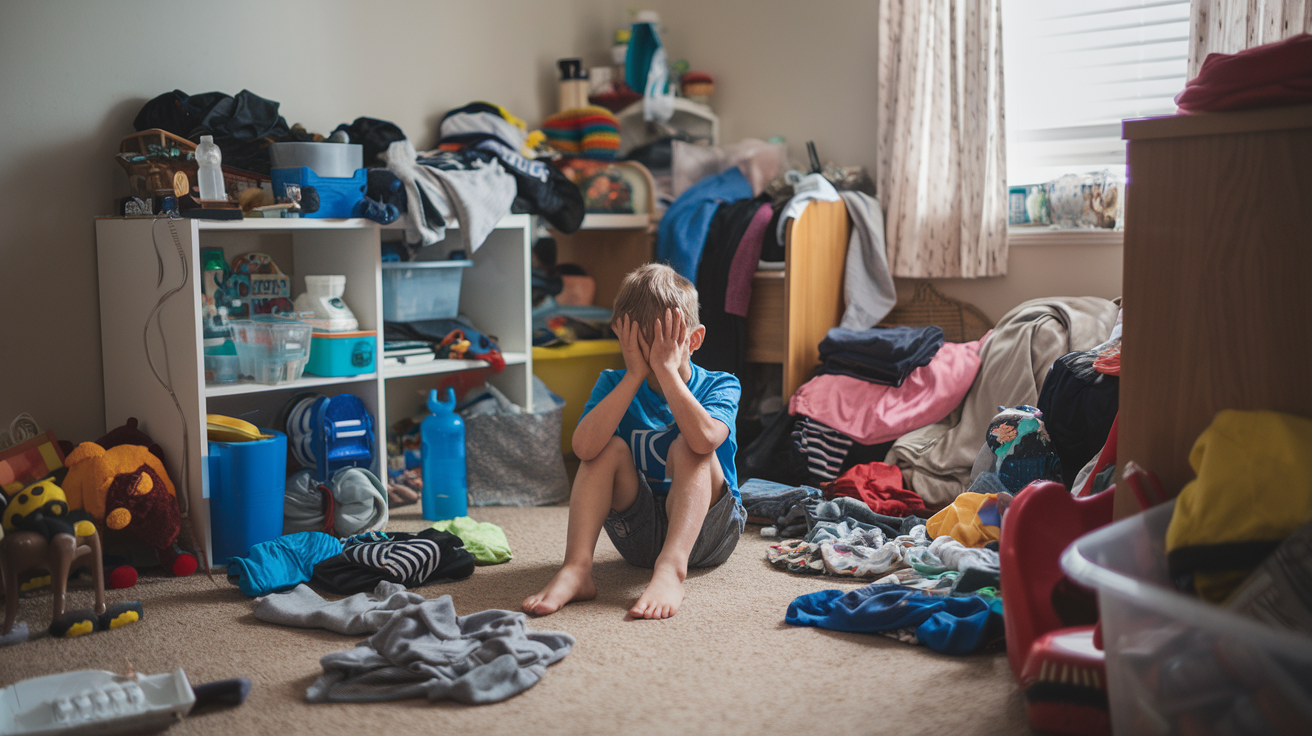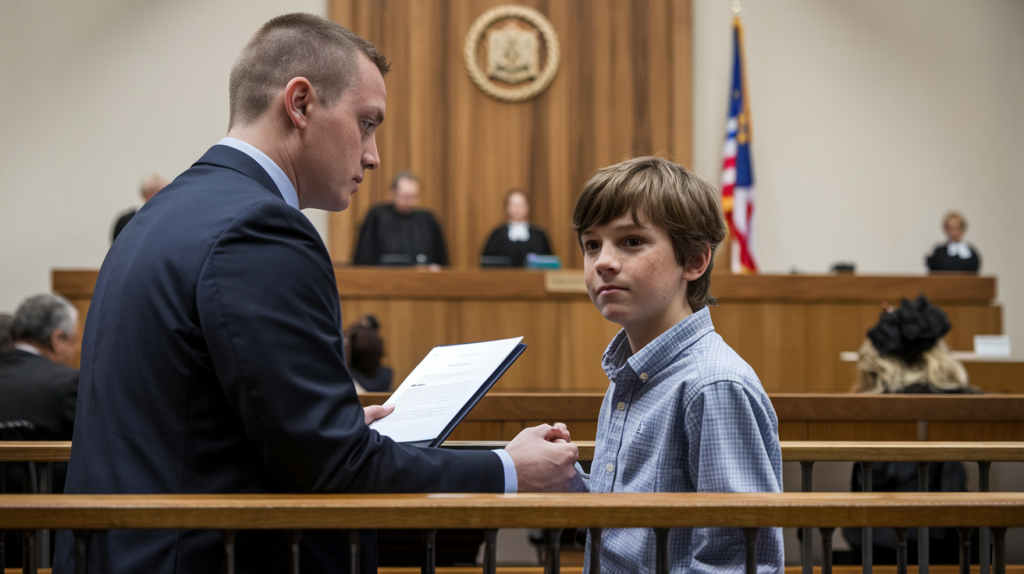Have you ever wondered what happens when a parent skips court meetings about their children? Well, it’s called a default judgment, and it can change how families spend time together.
Legal terms can be confusing, so let’s break this down.
If you’re worried about missing a court date or dealing with a parent who didn’t show up, this blog will explain what this means for you and your children.
Let’s look at what happens right after a default judgment, what it means for your family’s future, and what you can do about it.
The Complete Process of Default Judgment

- Filing the Petition: One parent files a petition for child custody, requesting decisions about the child’s care.
- Serving the Other Parent: The petitioning parent serves the other parent with a copy of the petition and a notice of the court hearing, giving them a chance to respond.
- Failure to Respond: If the other parent fails to respond or shows up in court by the deadline, the petitioning parent can request a default judgment.
- Court Review: The court reviews the case, and if the non-responding parent hasn’t taken the necessary legal steps, the judge may grant custody to the petitioning parent.
- Consequences for the Non-Responding Parent: The non-responding parent may lose the chance to present their case or request changes to the custody arrangement.
- Motion to Set Aside Default: In some cases, the non-responding parent can ask the court to set aside the default judgment if they have a valid reason for not responding.
- Final Custody Order: Once the default judgment is granted, the court issues a final custody order.
- Ongoing Modifications: The custody arrangement may be modified later if circumstances change or if the non-responding parent proves the original judgment was unfair.
What Happens After a Default Judgment is Issued

Here is the after-process once a default judgment is issued:
1. Immediate Legal Consequences
The court typically grants the petitioning parent’s requested custody arrangements, including primary physical custody, legal custody for decision-making, and visitation schedules.
The defaulting parent loses their opportunity to negotiate terms and must comply with the court’s orders, which are now legally binding.
2. Enforcement of The Order
The custody order becomes immediately enforceable.
Law enforcement can assist in implementing the custody arrangement, and violating the order can result in serious legal consequences, including contempt of court charges.
3. Limited Parental Rights
The defaulting parent’s rights may be severely restricted.
They might receive minimal visitation time, lose decision-making authority regarding their child’s education, healthcare, and religious upbringing, or be required to have supervised visits only.
4. Financial Obligations
The judgment often includes child support obligations.
The defaulting parent must pay the ordered amount regardless of their absence during proceedings.
Failure to pay can result in license suspension or other enforcement actions.
5. Impact on Future Modifications
While the judgment can be modified later, the defaulting parent faces a higher burden of proof to show significant changes in circumstances warranting modification.
They must also typically clear any contempt findings and prove their commitment to being involved in their child’s life.
6. Documentation Requirements
The defaulting parent may need to maintain detailed records of any attempts to contact their child, payments made, and efforts to comply with the court order, as these become crucial for any future legal proceedings.
Certain Consequences of Default Judgment for Parents

A default custody judgment can strip parental rights, limit visitation, and require supervised contact.
- Loss of Custody or Visitation Rights: The non-responding parent may lose custody or visitation, as the court may grant these rights to the other parent based on the presented evidence.
- Inability to Contest the Judgment: Contesting a default judgment is difficult unless the non-responding parent proves the judgment was unjust or provides a valid reason for not participating.
- Increased Legal Complications:Uncontested default judgments can lead to future legal problems, including difficulty re-establishing a relationship and costly motions to enforce the judgment.
- Damaged Parent-Child Relationship: The non-responding parent may lose parenting time, leading to a weakened bond with the child, while the child may become emotionally closer to the custodial parent.
Key Reasons for Default Judgment in Child Custody
| Reason | Explanation |
|---|---|
| Failure to Respond to the Custody Petition | Not filing an answer or attending the hearing results in forfeiting the right to participate. |
| Not Receiving Legal Notice | If the service of legal documents is improper, the non-responding parent may miss deadlines. |
| Lack of Knowledge About the Legal Process | Misunderstanding legal requirements can lead to missing deadlines or failing to respond. |
| Avoidance or Disinterest in the Custody Case | Some parents intentionally avoid participation due to a lack of interest or emotional detachment. |
| Inability to Attend Court Hearings | Health issues, financial constraints, or emergencies may prevent court attendance. |
| Inconsistent or Unstable Contact Information | Moving or changing contact details without updating the court can lead to missed notifications. |
| Underestimating the Importance of the Case | Some parents do not realize the serious consequences of not responding to custody cases. |
| Legal Representation Issues | A lack of proper legal guidance can result in missing crucial procedural requirements. |
Impact of Default Judgment on Children
- Emotional Impact- The sudden change in parental access can trigger anxiety, depression, and feelings of abandonment in children, especially when one parent’s involvement becomes limited or inconsistent.
- Educational Consequences- Children may experience academic challenges due to the emotional stress of family disruption, potentially affecting their concentration, grades, and overall school performance.
- Psychological Development- The default judgment can impact a child’s sense of security and trust, potentially affecting their ability to form healthy relationships later in life and their understanding of commitment.
- Behavioral Changes- Children might exhibit acting-out behaviors, withdrawal from activities, or increased aggression as they struggle to process and cope with the changed family dynamic.
- Parent-Child Relationship Strain- The reduced contact with the defaulting parent can weaken the parent-child bond, creating emotional distance and potentially causing long-term attachment issues.
Conclusion
A default judgment in a child custody case can have multiple implications, but it doesn’t have to be the end of your parental period.
The courts’ primary concern remains the best interests of the child.
While challenging a default judgment requires prompt action and dedication, the stakes couldn’t be higher when it comes to your relationship with your child.
If you want to modify the custody arrangement or overturn the default judgment entirely, remember that patience and proper legal procedure are your major keys.
Don’t let the initial setback define your role as a parent – take action today to protect your parental rights and maintain your presence in your child’s life.








